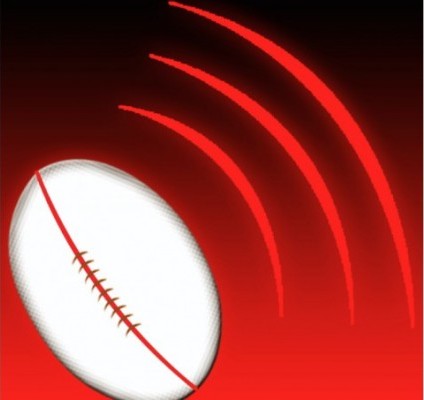Varsity Teams Announce 1st Championship
Varsity Teams Announce 1st Championship
The National Collegiate Varsity Women’s Rugby Association (NCVWRA) voted a national championship into existence this fall. A five-person tournament committee composed of three athletic department administrators and two varsity coaches will name and seed the top eight varsity programs. The quarterfinals will occur on Nov. 14, and the higher-ranked team will host. Brown University will host the Final Four on Nov. 20-22 and name the first-ever varsity champion.
There are two forces driving the NCVWRA. Quinnipiac’s Becky Carlson is the familiar entity within the rugby community and has been at the epicenter of the varsity movement since day one. She’s the “dean” of the college coaches’ group, which consists of fellow varsity program leaders around the country. To the NCAA community, Jack McDonald is the familiar entity. The associate vice president of athletics at the University of New England (whose women’s rugby team will go varsity in fall 2016) is also the former QU athletics director. McDonald leads the NCVWRA’s administrator group and brings decades of experience gleaned from numerous NCAA committee posts (and then some). Paired with Carlson’s intimate connection with rugby and the student-athlete’s organization, the duo are arguably the best proponents the varsity sport has seen to date.
NCVWRA’s short-term goal is fairly obvious: Get 40 women’s varsity teams so the sport can graduate from the Emerging Sports list to full NCAA varsity status.
“There are a whole bunch of schools ready to dip their toes in the water,” McDonald reflected on the progress made thus far. “If you talk to me this time next year, I’m willing to bet we’ll have 20-30 teams.”
The NCVWRA isn’t going out and recruiting programs, but serving as a resource. The group is also the main liaison with the NCAA, a role that used to lie with USA Rugby. In fact the relationship between NCVWRA and USA Rugby has grown contentious on several fronts.
“When [USA Rugby] said no to supporting or at least recognizing the need for an-all varsity championship, we moved to form our own organization,” Carlson said of NCVWRA’s genesis. “Our goal in creating the championship with this demographic of NCAA student-athletes only, is to create a product that future NCAA athletic directors and administrators could point to as a full-fledged NCAA placeholder championship. This is no different than other previous Emerging Sports like ice hockey and water polo. When lacrosse began to explode, the sponsoring NCAA institutions created the American Lacrosse Conference. This is no different, and we are not trying to reinvent the wheel, just to move forward.”
The fact is that varsity teams don’t necessarily need USA Rugby. University athletic departments provide all of the benefits of USA Rugby membership (millions of dollars in liability insurance, to start) – save one, key resource: referees. Carlson attempted to broker a membership deal that mimicked the one offered to high school varsity teams, and boiled down to paying a flat registration fee for the team to remain in good standing with the National Governing Body.
It wasn’t that simple, and the unsettled dispute bled into the fall season. Meanwhile, games were scheduled to take place, and referees were being withheld because programs were deemed ineligible.
“The assignment of officials is based on whether a student pays dues – that’s unheard of in any other varsity sport,” McDonald said. “USA Rugby would call you up on Friday, say, ‘You owe us $800, and if you don’t pay, we’re not sending you an official on Saturday.’ That’s not the way you run a railroad, and you’re only hurting the student-athletes.
“I’m glad that USA Rugby acted unusually,” McDonald added. “It woke us up that we needed to do something. The sport needed to be run by college administrators, not USA Rugby. That’s how basketball, soccer, football are all run.”
The referee situation hasn’t been settled, but Carlson is optimistic that officials will value the opportunities in contributing to the women’s varsity movement, whose member institutions are well funded, have proper facilities, and engender a professional experience for all involved.
“USA Rugby has done a great job getting the sport to this level, but honestly, I don’t think they’re thrilled with us,” McDonald said. “But that’s part of the growth. There was a day when women’s ice hockey was playing in public rinks and practicing at midnight and playing games on Sunday morning. As each sport grows, whoever governed it before isn’t crazy about losing – frankly – the money.”
It's all growing pains, but the future reward will be worth it. McDonald reflected on the AFL and NFL split, and the years of feuding and planning that occurred before the first Super Bowl. He remembers when the Association for Intercollegiate Athletics for Women was absorbed by the NCAA in the early 80s, and when the London Olympics inaugurated tennis as a medal-winning sport.
“This is going to be a historic thing in athletics,” McDonald said.










